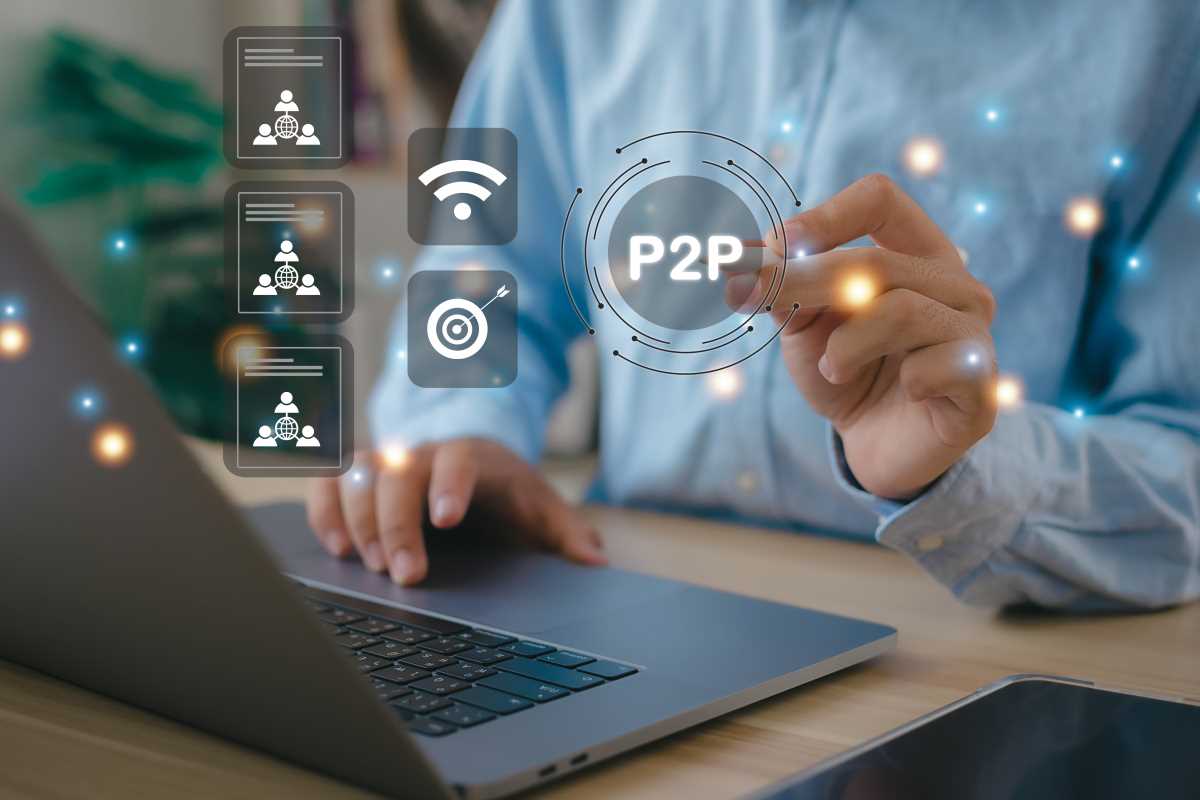As a recruitment professional, you handle a constant stream of sensitive information. From candidate resumes packed with personal data to confidential client contracts and internal hiring strategies, protecting this information is a top priority, especially when you're working remotely from a coffee shop, airport, or home office. This is where a Virtual Private Network, or VPN, becomes an essential tool in your professional toolkit, acting as your digital bodyguard in the online world.
But with so many VPN options available, how do you choose the right one? It can feel like sorting through a pile of resumes for a role you know nothing about. Let's break down what a VPN is, why you need one, and how to compare the different options to find the perfect fit for your recruiting work.
What is a VPN, and Why Should Recruiters Care?
Think of the internet as a busy public highway. When you access a website or send an email without a VPN, your data travels on this highway in a transparent car. Anyone with the right tools—like hackers or even just nosy people on the same public Wi-Fi network—can peek inside and see what you're doing. They can see the websites you visit, the files you download, and even potentially intercept the information you send.
Now, imagine your data is traveling in an armored, blacked-out truck through a private, underground tunnel. That's what a VPN does. It creates a secure, encrypted connection (the tunnel) between your device (your laptop or phone) and the internet. All your data is scrambled (encrypted) before it even leaves your device, travels through this secure tunnel, and is only unscrambled when it reaches its destination.
For a recruiter, this is crucial. Consider these everyday scenarios:
- Working from a Café: You're sipping a latte while reviewing a star candidate's resume on your laptop. Without a VPN, a hacker on that same public Wi-Fi network could potentially access that resume, stealing the candidate's personal information like their address, phone number, and work history. This is a massive privacy breach and a potential legal nightmare.
- Accessing Your ATS: You need to log into your Applicant Tracking System (ATS) to update a candidate's status. A VPN encrypts your login credentials, preventing them from being stolen. This protects not just one candidate's data, but your entire database of candidates and client information.
- International Recruiting: You're trying to source candidates from another country, but some job boards or professional networking sites have regional restrictions. A VPN allows you to connect to a server in that country, making it appear as if you are browsing from there. This lets you bypass geographic blocks and access a wider talent pool.
- Maintaining Client Confidentiality: You're sending a sensitive hiring proposal to a major client. A VPN ensures that the details of this proposal, including salary information and strategic hiring plans, remain completely private and secure from interception.
In short, a VPN is your first line of defense in protecting candidate data, client confidentiality, and your firm's proprietary information.
Key Features to Look for in a VPN
When you start shopping for a VPN, you'll see a lot of technical terms. Don't get overwhelmed. Here are the most important features to focus on, explained in simple terms relevant to your work.
1. Strong Encryption: This is the "scrambling" part of the VPN. The industry standard is AES-256 encryption. Think of it as a padlock with a key so complex that even the world's most powerful computers would take billions of years to crack it. Anything less than this standard isn't worth your time. Your candidate and client data deserve the best protection available.
2. No-Logs Policy: This is non-negotiable. A "no-logs" or "zero-logs" policy means the VPN provider does not track, store, or share any information about your online activity. They don't keep records of the websites you visit, the files you download, or how long you're connected. Why is this important? If a VPN provider keeps logs, those logs could be hacked, sold, or handed over to government agencies. To ensure true privacy, choose a provider that has had its no-logs policy independently audited by a reputable third-party firm. This is like getting a background check on the company protecting your data.
3. Server Network and Locations: A good VPN will have a large network of servers in many different countries.
- Speed: The more servers there are, the less crowded they will be, which generally means faster connection speeds. This is important when you're on a video call with a candidate or uploading large files.
- Geographic Unblocking: As mentioned earlier, if you need to access content specific to a certain country—like a UK job board or a German professional network—you'll need a VPN with servers in that location. A wider network gives you more options for international sourcing.
4. Connection Speed and Performance: A VPN will always slow down your internet connection slightly because of the encryption process. However, a high-quality VPN will have a minimal impact. You shouldn't notice a significant lag during video interviews or while downloading resumes. Many providers offer free trials or money-back guarantees, so you can test the speed yourself before committing. Look for providers that use modern connection protocols like WireGuard, which is known for being both fast and secure.
5. Kill Switch: A kill switch is a critical security feature. If your VPN connection unexpectedly drops for even a split second, the kill switch will immediately block your device from accessing the internet. This prevents your real IP address and unencrypted data from being accidentally exposed. Imagine you're in the middle of updating a sensitive client file when the coffee shop's Wi-Fi flickers. Without a kill switch, your computer might reconnect to the internet without the VPN's protection, exposing that data. The kill switch acts as a safety net to prevent this from ever happening.
6. Number of Simultaneous Connections: As a modern professional, you probably use multiple devices: a laptop, a smartphone, and maybe a tablet. A good VPN plan will allow you to connect several devices at the same time under a single subscription. This means you can protect your laptop while you're working and your phone while you're checking emails on the go, all without having to pay for separate accounts.
Comparing the Top VPN Providers
Now that you know what to look for, let's look at a few of the top players in the market. While we won't declare one "the best" (as the right choice depends on your specific needs), here’s a quick comparison to get you started.
- NordVPN: Often praised for its blend of speed, security, and user-friendliness. It boasts a massive server network, strong AES-256 encryption, and a strict, audited no-logs policy. Its Threat Protection feature also blocks malware and trackers, adding an extra layer of security when you're browsing candidate profiles on various websites. For recruiters who want a fast, reliable, and easy-to-use option, this is a strong contender.
- ExpressVPN: Known for its top-tier speeds and exceptional reliability. It has servers in a vast number of countries, making it a great choice for international recruiters. It also features a strict no-logs policy and a very effective kill switch. While it’s often priced slightly higher than its competitors, its performance and robust security make it a favorite for professionals who can't afford any downtime or security lapses.
- Surfshark: A fantastic budget-friendly option that doesn't skimp on features. Its standout feature is that it offers unlimited simultaneous connections. This means you can protect every device you and your family own with just one subscription. It has strong security, a solid no-logs policy, and good speeds, making it an excellent value proposition for the cost-conscious recruiter or a small, growing recruitment firm.
The Final Verdict: Making Your Choice
Choosing a VPN doesn't have to be complicated. For a recruitment professional, the decision boils down to a few key priorities: protecting sensitive data, ensuring reliable performance, and having the flexibility to work from anywhere.
Start by assessing your specific needs. Are you primarily focused on securing your connection on public Wi-Fi? Or do you need to bypass geo-restrictions for international sourcing? Do you need to protect just your work laptop, or multiple devices?
Use a provider's money-back guarantee to your advantage. Sign up for a service and put it through its paces. Run a video call with a colleague, access your ATS, and download a few large files. See how it impacts your daily workflow.
In the end, any of the reputable VPNs will provide a massive security upgrade over no VPN at all. By investing a few dollars a month, you're not just buying a piece of software; you're investing in the trust of your candidates, the confidentiality of your clients, and the integrity of your professional reputation.
 (Image via
(Image via




